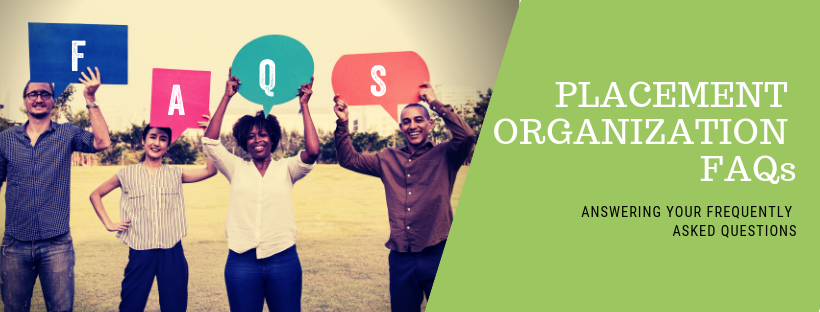
Who serves as an LVC Fellow?
LVC recruits people from across the United States who are self-motivated, mature and committed to doing a year or semester of service. All are required to be 21 years of age and many are recent college graduates. There is no upper age limit; older participants and/or married couples are welcome to apply.
How does LVC place fellows?
Applicants are screened by the LVC through an online written application, references, and a phone interview. After applicants receive initial acceptance into LVC, they choose positions of most interest to their social justice priorities, and interview. After completing these interviews, both fellows and placement organizations are asked to give feedback to LVC. Using this input, LVC staff makes the best possible matches that are mutually agreeable to both the applicant and the placement organization. The matching process begins in February and runs through July. Year volunteers begin service in mid August, and the year ends in July.
Will LVC come to my city?
LVC was created as a program that focuses on placements in the inner city areas of the United States. Currently, LVC accepts applications from organizations located in Baltimore, Minneapolis/St. Paul, Washington DC, and Wilmington, DE. Organizations offering virtual-only positions can be located anywhere in the U.S.
Does LVC only place fellows at faith-based organizations? Are all fellows Lutheran?
Fellows work in a variety of settings including shelters, youth programs, environmental organizations, medical and legal clinics, alternative high schools and education programs, housing agencies, food banks, advocacy groups — as well as faith-based organizations and churches. Through LVC, these organizations receive talented and committed full-time fellows —workers they could not otherwise afford.
Participants are not required to be Lutheran. LVC is open to people of all spiritualities and perspectives. About one-third come from Lutheran backgrounds. Some may not identify with a particular faith or denomination. LVC asks everyone to be open to exploring and experiencing their spirituality with others.
What do Fellows do after the program ends?
For many, the LVC experience is the beginning of a life-long commitment to working for justice and peace. Some continue on as salaried employees at their placements while others seek positions in other social service agencies. Others go on to graduate school to pursue careers of service (social work, education, law, medicine, seminary). There is also the opportunity for a second term of service. In general, fellows gain valuable work, life, and leadership experience that is well respected and helpful in whatever they choose to do next.
Where does LVC get funding?
The LVC operating budget comes from many sources. Approximately 33-50%% of LVC’s total budget comes from placement fees paid by placement organizations; and the additional 67% is raised by LVC annually. Additionally, individual donors give 32% of the budget, congregations give 16%, and ELCA divisions give 9%. The remaining 10% comes from miscellaneous sources. The LVC-Placement funding partnership allows participation by fellows at no cost.
Does LVC welcome gay, lesbian, bisexual and transgender applicants?
LVC does not discriminate due to ethnicity, race, creed, age, culture, disability, economic class, gender identity, or sexual orientation. As a Reconciling in Christ organization, LVC strives to be actively welcoming and supportive of applicants who are gay, lesbian, bisexual or transgender and asks that our placements join us in this effort.
Does LVC welcome People of Color applicants?
LVC does not discriminate due to ethnicity, race, creed, age, culture, disability, economic class, gender identity, or sexual orientation. More importantly, our “Journey to an Inclusive Community” (JIC) means we seek to actively identify, recruit, welcome and include People of Color — and seek to increase representation within our program, staff, board, support networks, and placements.
